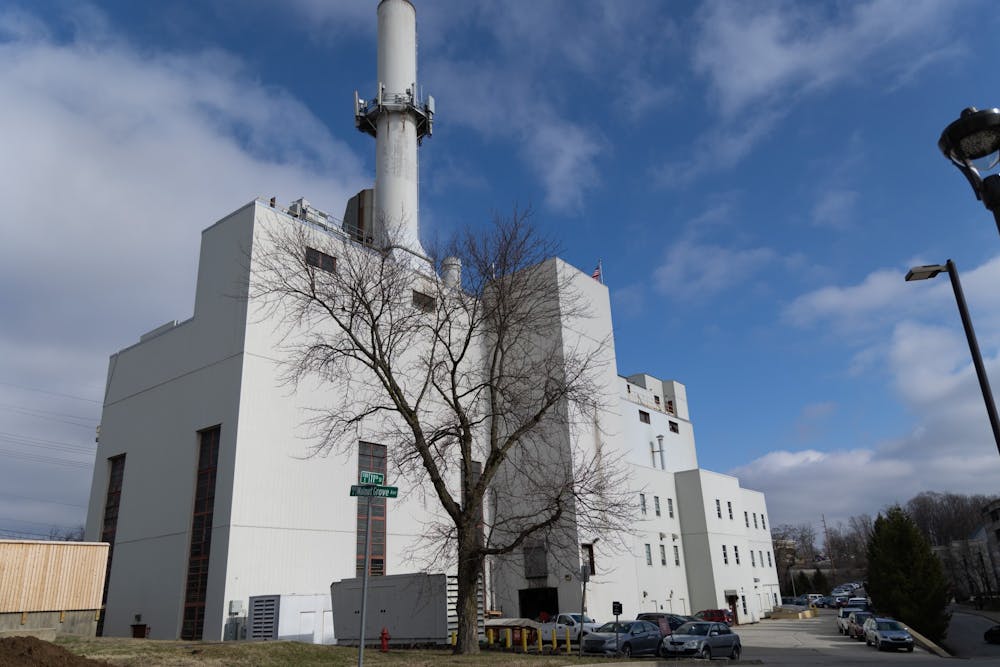Bloomington’s city council unanimously approved a resolution to adopt Project 46, a coalition between Bloomington, Nashville and Columbus Indiana, aiming to combat climate change, on April 12.
Columbus Mayor Jim Lienhoop, Nashville Town Manager Sandie Jones and Bloomington Mayor John Hamilton announced Project 46 on March 24. The three leaders have called on their town and city councils, county commissioners and county councils to sign a resolution pledging their support for the project.
After the resolutions pass, a task force will be established with representatives from each community to oversee the project, according to a City of Bloomington news release. Nashville’s town council will vote on the resolution on April 20. The City of Columbus has not yet set a date to vote on the resolution, according to their website.
[Related: Updated EPA regulations limit Indiana's pollution]
Alex Crowley, director of Bloomington’s Economic and Sustainable Development Department, said the project aims to increase collaboration and secure federal funds for sustainable development.
Crowley said cities like Bloomington and Columbus, and especially small towns like Nashville, often get lost in the shuffle when it comes to gaining access to federal climate grants, due to their smaller size. He said with an increase in federal funds due to the Inflation Reduction Act and the Infrastructure Investment and Jobs Act, securing grant money will be exceedingly important in coming years. By forming a coalition, Crowley said the combined population and resources will help them apply for more funding.
Crowley said utilizing the city of Bloomington’s efforts in climate action, as well as Columbus’ private sector’s efforts, will make the coalition’s plan stronger, due to it’s cross-sectoral nature. For example, Bloomington adopted a climate action plan in April 2021, with the goal of carbon neutrality by 2050. Columbus-headquartered company Cummins has pledged major reductions in water use and greenhouse gas emissions.
“We’re an interesting counterbalance to each other,” Crowley said. “Some of our strengths are some of their weaknesses, and some of their strengths are some of our weaknesses.”
[Related: Duke Energy petitions for rehearing on rate-setting case]
Lienhoop said he hopes the measure will increase collaboration across the political aisle and lead to more bipartisan solutions, at least on a municipal level.
“Mayor Hamilton is a Democrat, and I’m a Republican,” he said. “I just want to show people that those differences don’t apply when we’re talking about municipalities and doing our best to leave as little of an environmental footprint as we can.”
In addition to the benefits of collaboration, Lienhoop said friendly competition between each involved community will also help accelerate efforts to decarbonize.
“There's no grand prize, there’s no money to be had at the end of the finish line,” he said. “But I think we all do well when we have a bit of a goal.”
Lienhoop said though there are not many specifics yet, he anticipates the coalition’s plan will include setting up a greenhouse gas inventory, a system to measure the total greenhouse gas emissions in a community. After a measurement is completed, each community will be better able to track their reductions.
Hamilton said he wants to see the project bolster the region’s chances of receiving federal grant money, reducing transportation’s carbon footprint and increasing the efficiency of buildings. He said incorporating protective measures for rural watersheds, forests and agriculture will be key to the coalition’s goals, as well as larger clean energy installations.
“It would be terrific if our area could get a large-scale clean energy project, whether it’s a big solar array or a wind farm,” Hamilton said.
[Related: Students give feedback about IU's climate action plan at forum Thursday]
Hamilton said he hopes the plan will inspire other regional coalitions to address what he refers to as “the climate emergency.”
“I don’t think there's any place in Indiana that’s done this," he said. “We hope that as we find a way forward with this, if it’s successful, others can learn from us.”
Hamilton said although they do not have a formal process for other communities to join the project, he hopes connected counties and nearby towns will join by passing a resolution and committing financial resources to support the project’s efforts.
“This is one of the most difficult challenges in front of governments, societies and communities,” Hamilton said. “Addressing it together is really encouraging, and I think we’re more likely to be successful.”




